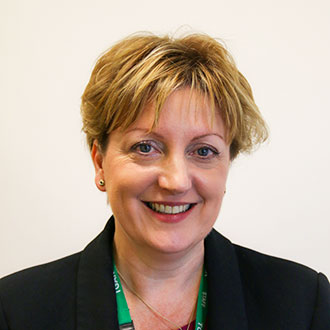Careers

Careers Team

Jacqui Robinson
Careers Leader

Helen Cunningham
Careers Advisor
Jacqui email: JRobinson@kingshurst.tgacademy.org.uk
Telephone (0121) 329 8300, Ext: 8925
Helen email: HCunningham@kingshurst.tgacademy.org.uk
Careers Education, Information, Advice and Guidance programmes make a major contribution in preparing young people for opportunities, responsibilities and experience of life. They help young people make decisions and manage transitions as learners and workers. It is vital that all 11-18-year olds have the knowledge and skills they need to make informed choices.
Tudor Grange Academy Kingshurst (TGAK) is committed to providing a planned programme of CEIAG for all students in Years 7-13, in partnership with outside agencies (Colleges, 6th Forms, Apprenticeship Providers, and Universities).
The careers programme is designed to meet the needs of all students at TGAK. It is differentiated and personalised to ensure progression through activities that are appropriate to students’ stages of career learning, planning and development.
There is a heavy emphasis on careers support in Years 10 and beyond where students are supported with their research and preparation for applications for post 16 education or training. The programme includes Life Long Learning career lessons and 1:1 career guidance activities, including career guidance appointments either in-person, on-site, or remote (phone call or Teams appointments), careers information stands at academy events (e.g. parents’ evenings); information through talks in assemblies, work-related learning and other outside agency intervention.
Life Ready Programme
TGAK are part of the Life Ready Programme Solihull. This programme provides a framework designed to develop independent, life ready young adults. The programme is based on evidence from the Gatsby Foundation.
The Gatsby Benchmarks originated in a research report (Good Career Guidance) from the Gatsby Foundation in 2013. The report was commissioned by Lord Sainsbury and Sir John Holman was appointed to lead a research team to focus on international evidence for ‘what works’ in career development. The research provides a comprehensive study of career development exploring key elements of good career development. The eight benchmarks are outlined below:
| 1 | A stable careers programme |
| 2 | Learning from career and labour market information |
| 3 | Addressing the needs of each pupil |
| 4 | Linking curriculum learning to careers |
| 5 | Encounters with employers and employees |
| 6 | Experiences of workplaces |
| 7 | Encounters with further and higher education |
| 8 | Personal guidance |
The shared vision of the Life Ready Solihull Programme is that students leaving TGAK will have the skills, knowledge and dynamism to reach their full career potential, to meet the needs of employers and to contribute to economic growth. Therefore we are always looking to engage with local businesses to improve the support we can offer our students and staff in the delivery of the curriculum and wider opportunities, please do make contact with our careers leader if you can offer your assistance.
The shared vision … is that students leaving TGAK will have the skills, knowledge and dynamism to reach their full career potential, to meet the needs of employers and to contribute to economic growth.
Labour Market Information
What is labour market information?
Labour market information can tell you
- The number of people in certain types of jobs
- What jobs and skills employers are looking for
- Which industries are recruiting and where that are located
- Growing or declining job areas and general employment trends
When thinking about your career ideas it is useful to consider what is happening in the labour market, consider what is happening around you and always have a ‘back-up’ plan
What does this mean to me?
The more qualifications you have the more jobs you can apply for. Most employers want someone who has at least 5 good GCSE’s including English and maths and often science too. If you have these as well as any work experience (a Saturday job or volunteering for example) then you have a good start into your career path.
Market sectors
Healthcare is about the treatment and support of medical conditions on hospitals, health centres and in the community. If you are looking for an interesting career with lots of opportunities to progress then health is or you.
What could you earn?
Pharmacist: £26k – £83k
Phlebotomist: £16k – £23k
Paramedic: £22k – £35k
Nurse: £22k – £48k
Doctor: £26k – £102k
Links:
www.stepintothenhs.nhs.uk
www.healthcareers.nhs.uk
www.nmc.org.uk
Useful subjects to have for this sector: maths, biology, chemistry, physics, psychology, sociology
Social care is about providing personal and practical care and support to help people live their lives; it can be a very rewarding role. You could work with someone with a physical disability, a mental health conditions learning disability or someone who is overcoming other challenges in their life.
What could you earn?
Social worker: £24k – £40k
Residential home manager: £20k – £50k
Registered nurse: £22k – £48k
Housing support officer: £20k – £40k
Occupational therapist: £22k – £41k
Links:
www.ukhca.co.uk
www.skillsforcare.org.uk
www.thinkcarecareers
Useful subjects to have for this sector: health & social care, psychology, sociology, English, maths, ICT
The creative sector is about creating original ideas and products and is often split into 3 parts; arts, culture and creative media.
What could you earn?
TV video and audio engineer: £17k – £38k
Web designer: £18k – £40k
Print assistant: £14k – £22k
Graphic designer: £16k – £50k
Furniture maker: £14k – £35k
Links:
www.screenskills.com
www.bubble-jobs.co.uk
www.ccskills.org.uk
Useful subjects to have for this sector: English, maths, ICT, engineering, art, music, design, media, chemistry
Engineering involves the use of scientific and practical knowledge to invent and construct everything around us. Manufacturing is the production of goods from raw materials into finished goods and is often high tech.
What could you earn?
Production technician: £18k – £35k
Mechanical engineer: £22k – £55k
CAD technician: £16k – £36k
Electronics engineer: £20k – £50k
Technical design engineer: £27k – £50k
Links:
www.semta.org.uk
www.futuremorph.org
www.tomorroesengineers.org.uk
Useful subjects to have for this sector: maths, physics, chemistry, English, ICT, languages, design, biology
Food and drink is the largest manufacturing sector in the UK. From farm to fork roles include product development, manufacturing, quality testing, sales and distribution.
What could you earn?
Baker: £15k – £45k
Food scientist: £20k – £45k
Production engineer: £22k – £45k
Quality assurance technician: £22k – £35k
Food production operative: £14k – £24k
Links:
www.tastesuccess.co.uk
www.tastycareers.org.uk
Useful subjects to have for this sector: English, maths, chemistry, biology, business, catering, ICT, nutrition
This sector employing 41,260 covers financial, business consultancy, and legal services through to technical services such as architecture and scientific research to support roles such as customer services and business admin.
What could you earn?
Chartered accountant: £30k – £50k
Insurance account manager: £20k – £75k
Office manager: £22k – £45k
Contact centre worker: £14k – £22k
Human resources officer: £22k – £35k
Links:
www.cipd.co.uk
www.icaew.com
Useful subjects to have for this sector: English, maths, ICT, languages, business and admin, sociology
This industry includes events, hospitality services, hotels, pubs, tourist attractions, nightclubs, festivals and restaurants. If you like meeting people and are enthusiastic and organised then this could be the sector for you! There are plenty of entry-level jobs from which you can quickly progress.
What could you earn?
Restaurant manager: £18k – £45k
Chef: £14k – £50k
Events manager: £18k – £75k
Air cabin crew: £14k – £30k
Barista: £12k – £22k
Links:
www.careerscope.uk.net
hospitalityguild.co.uk
Useful subjects to have for this sector: English, business and admin, maths, leisure and tourism, languages, history, sociology, ICT, catering
If you like working with people this is definitely a career to choose and the options are extensive. As well as sales roles there are lots of behind the scenes jobs such as buying, merchandising, stock control, logistics, store operations as well as roles based in head office.
What could you earn?
Visual merchandiser: £12k – £55k
Sales assistant: £11k – £25k
Buyer: £22k – £50k
Car salesperson: £14k – £40k
Retail manager: £20k – £70k
Links:
www.inretail.co.uk
www.fashionretailacademy.ac.uk
Useful subjects to have for this sector: business and admin, English, maths, ICT, design
This is the planning design and creation of buildings or infrastructure such as roads, bridges or railways. The construction industry is growing significantly and can offer amazing career opportunities to develop and travel.
What could you earn?
Carpenter/joiner: £28k – £32k
Electrical trades: £25k – £60k
Civil engineer: £20k – £60k
Plumber: £16k – £45k
Painter and decorator: £15k – £30k
Links:
www.citb.co.uk
www.goconstruct.org.uk
www.the-nhtg.org.uk
Useful subjects to have for this sector: maths, sciences, ICT, geography, design, English
Logistics and transport activities involve the efficient flow of goods and services locally nationally and internationally across road, rail air or sea. It is a global, 24-7 365 days a year industry which supports all sectors. There are a wide variety of roles from sales, marketing ICT, finance, and front line operations.
What could you earn?
Transport manager: £23k – £50k
Train driver: £35 – £60k
Warehouse manager: £18k – £80k
Pilot: £18k – £100k
Airport baggage handler: £15k – £22k
Links:
www.careersthatmove.co.uk
www.eastmidlandsairport.com
Useful subjects to have for this sector: English, business and admin, maths, languages, ICT, sciences, sociology
This major sector deals with making raw materials into fabric which is then dyed, printed and fabricated into clothes. New innovation will mean that ICT and CAD will be in demand to meet the needs of high tech machinery.
What could you earn?
Textiles technician: £18k – £30k
Print engineer: £16k – £35k
Graphic designer: £16k – £45k
Fashion designer: £18k – £70k
Textiles dye technician: £16k – £34k
Links:
www.drapersjojs.com
ccskills.org.uk
Useful subjects to have for this sector: English, maths, ICT, design, languages, chemistry
Teaching and education is a growing sector not only in the UK but around the world, and universities in particular are competing in a global market.
What could you earn?
Nursery worker: £14k – £24k
Secondary teacher: £23k – £67k
Head teacher: £44k – £115k
Learning mentor: £14k – £24k
Adult tutor: £19k – £27k
Links:
www.tes.com
www.tefl.org.uk
getintoteaching.education.gov.uk
Useful subjects to have for this sector: English, maths, sciences, languages, ICT, history, geography, RE, design and technology
Useful Links
- 16-19 Bursary Fund: Bursary information for young people and their parents.
- Advocacy Matters: supports young people aged between 14-18 with SEND and their families.
- Apprenticeships: The National Apprenticeship Service is a government backed website which shows live apprenticeship vacancies.
- Apprenticeships: A useful guide for parents/carers on how apprenticeships work.
- Barclays LifeSkills: helps young people get the skills and experiences they need to enter the world of work.
- Careersbox: External careers website showing videos and clips of difference jobs and careers.
- icould: Another useful external careers website that can help students to discover the type of opportunities available to them.
- National Bureau for students with disabilities: Have a look here if you are a disabled young person who wants information about the various options and choices in education, training, volunteering and work post 16.
- National Careers Service: This is the government’s careers website giving valuable and impartial information on different jobs/careers, CV building and skills health check tools.
- Parent Guidance: Planning information to help parents and carers support their child’s career planning needs.
- Plotr: A really useful external careers website with lots of information on different careers and a careers quiz called ‘The Game’ which students may find of interest.
- Raising the age of Participation: This site provides details of the age that young people need to stay in education or training.
- Russell Group: Making Informed Choices. The Russell Group is an organisation which represents 24 leading universities. This document is a useful guide as students consider courses and subjects to study in sixth form or at college.
- Solihull for Success: Solihull MBC Employment and Skills Team are available to offer support in finding employment and training.
- STEM: useful website for young people interested in Science, Technology, Engineering and Maths.
- Step into the NHS: Find out more about the huge range of careers and opportunities offered by the NHS, one of the largest employers in the UK.
- UCAS Progress: Useful website to search for Post 16 courses. After entering information, this website will find colleges/providers within the given search area.
Downloads and Links